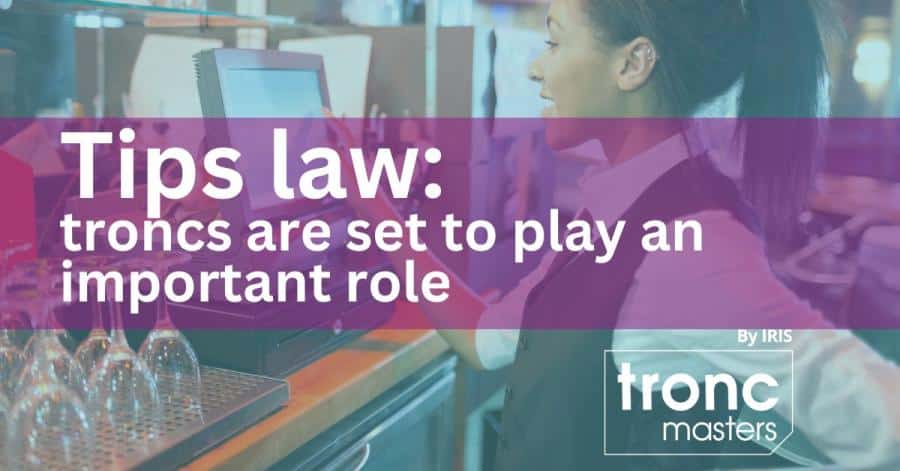
Tips law: troncs are set to play an important role
A new law designed to ensure hospitality workers get 100% of tips and service charges has taken an important step in the right direction.
The Employment (Allocation of Tips) Bill has had its second reading in the House of Lords, and every sign points to troncs continuing to be recognised under this law as a fair way to share out gratuities.
This Bill will now go to the committee stage, where it will be examined more closely. The committee will go through the legislation step by step and make sure that every clause is agreed upon, as well as provide clarity and listen to any amendments put forward by Members of the House.
Troncs and the importance of flexibility for employers
In moving the Bill in the House of Lords, Lord Robathan (Cons) said troncs were not on the table: “It is important that we retain flexibility for employers to choose how to distribute tips so long as that distribution is fair. Some employers may choose to use a tronc system to distribute tips […]
“The Bill does not seek to regulate the operators of independent tronc systems, although the employer will need to be satisfied that it is fair overall to make arrangements for distribution through a tronc.”
At this stage, it is highly likely the Employment (Allocation of Tips) Bill will be passed. Under the new legislation, businesses will have to provide a written policy, ensuring their tipping practices remain transparent and that workers get their share of gratuities by the end of the following month. This transparency includes keeping a record of the tips you have distributed, which each worker can then access.
Any allocation of tips considered unfair will be resolved in an employment tribunal.
In its current form, the new law says only applicable statutory deductions such as tax and National Insurance can be deducted.
Consideration for credit cards
During the reading, there was also a call by Lord Mitchell (Lab) for the Bill to take into account credit card payments – so that businesses do not take the burden of charges by passing on the full amount of money paid by patrons. His suggestion was for a maximum of 2% to be taken from the tipping pool for this purpose.
Lord Mitchell also asked that the Bill considers the daily fees paid by businesses employing agency workers. He said day rates account for tips the worker would have earned if they were in-house staff. Lord Mitchell’s concern is the new law might see agency workers effectively being tipped twice, and this would result in many hospitality workers leaving establishments and moving to this form of employment.
What choices do businesses currently have?
At the moment, there are four ways in which businesses can administer tips and service charges. They can:
- Keep everything and pass no benefit to employees, resulting in almost a third of the money being paid to HMRC.
- Pass on most of the money through payroll but keep some (often about 10%) for admin costs. Doing that means giving back more than 50% in taxes.
- Increase basic payroll rates rather than sharing tips separately, losing more than half the money in the process.
- Put a tronc scheme in place. With a tronc scheme, about 20% is paid in tax by staff, so employees get the best deal. There’s also no National Insurance cost to the hospitality business. With a tronc, the minimum is paid back to HMRC.
If you currently pass on the tips, then option four, the tronc system, is the most prudent way to achieve maximum efficiency. It’s also fair to staff and transparent, which is key when we consider the new legislation.
Set up a tronc scheme today
In research carried out by IRIS Software and Censuswide (Sep 2022), 67% of hospitality businesses know about tronc schemes, but 46% pay pooled tips without a tronc scheme, meaning 1.2 million hospitality workers are losing out.
Tronc schemes are tax-efficient and HMRC-compliant. They set up the rules around the distribution of pooled tips in a business and are overseen by a ‘Troncmaster’. A Troncmaster must remain independent of business owners, directors, or anyone with hiring responsibilities.
If this all sounds difficult to get right, that’s because it is. As we have learnt, businesses that try to go it alone with their tronc scheme can make mistakes.
Find out how we can take care of everything, so you’ll be worry-free when the new Bill becomes law.
